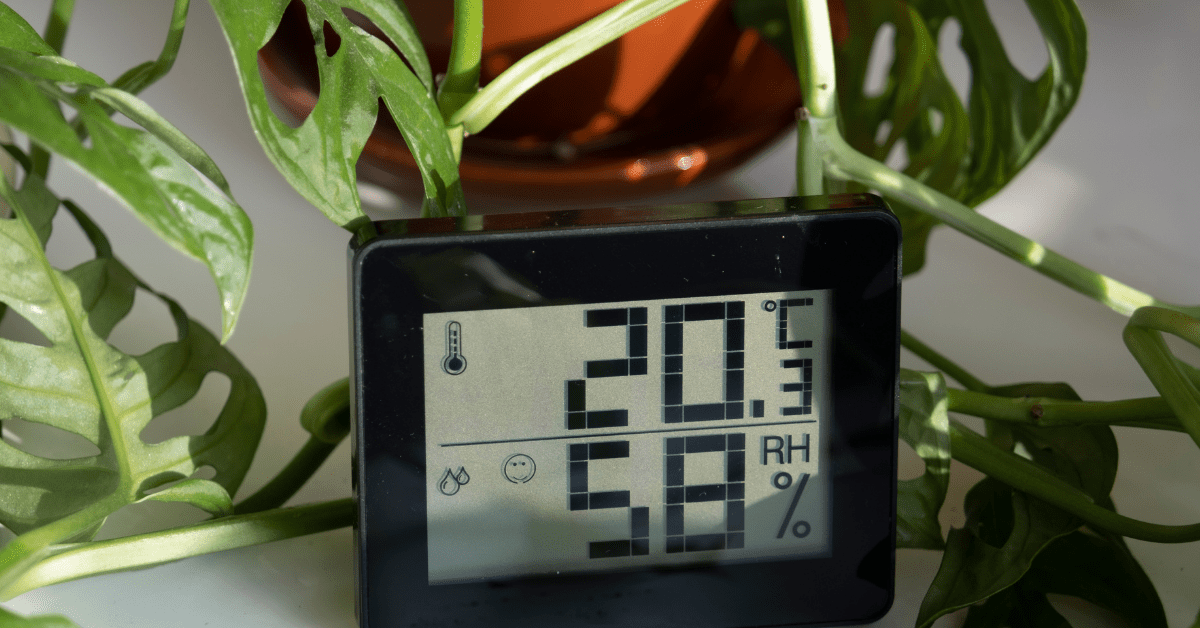
Florida is one of the most humid places in the United States. The average relative humidity level in Tallahassee is 70%. It reaches its peak (74%) during August and its lowest (65%) during April.
As a local, you may not have cared about humidity levels before. You might have already been accustomed to how wet the air is and accepted that Florida’s climate is just fine as it is. However, with the recent spikes in temperatures and crazy weather patterns, you might have already noticed that staying inside or outside is becoming unbearable.
You instantly sweat after you set foot outside even if you just showered. You sneeze more frequently inside your home even if you just recently cleaned the house. And to be honest, those are minor setbacks of high humidity compared to what humidity is capable of.
The scariest part of living in a very humid place is that viruses like COVID-19 can spread faster. Unfortunately, you cannot control humidity when you are outside. However, it is a different story inside your home, as you can easily manage your indoor air quality and humidity.
Continue reading to learn how you can control humidity inside your home and how you can prevent yourself and your family from getting sick and living uncomfortably.
An Introduction to Humidity
Humidity refers to the amount of moisture in the air. The more humid a room is, the damper it feels. And the less humid a room is, the drier it feels.
Relative humidity (RH)—or commonly referred to as humidity—is a measurement of how much water vapor or moisture is present in the air relative to the current temperature. It is often expressed in percentages, and it is the value you would often find in weather news and most thermostats.
On the other hand, there is what we call absolute humidity (AH). It is a measurement of how much water there is in the air regardless of temperature. It is expressed in g/m3 (mass of moisture per cubic meter of air).
Air can “hold” different amounts of moisture depending on its temperature. Because of that, warm air can have more water present in it than cold air. For example, it feels damper when the humidity is at 60%, and it is 91°F compared to 60% at 68°F. The absolute humidity levels of the two are different despite having the same relative humidity levels.
Target Relative Humidity Level for Your Home
Having a very high or low humidity level can cause complications in your health and affect your comfort. If there is a lot of moisture in the air, mold, and mildew can quickly grow, and allergens may stick around longer. If there is little moisture, your eyes, skin, and even your respiratory tract can dry up, which can cause itching and irritation.
To ensure that your life inside your home will be comfortable and safe from any risk of getting sick, you must manage the humidity levels in your house. The ideal relative humidity range that you should target is around 30%–65%. There is no exact value you can settle on, as multiple conditions can affect your comfort, and your preference may vary.
Usually, your air conditioner can manage to lower the humid air in Tallahassee and bring it to the ideal range. It removes the excess moisture in the air through condensation, which happens in its coils. If your AC is not bringing the RH levels lower than 60%, you might be facing a problem. And if you ignore this, you may face the consequences.
Consequences of Staying Outside the Ideal Relative Humidity Range
- High RH levels and temperatures feel hotter.
Your body cools itself through sweat and evaporation. With high moisture levels, your sweat does not evaporate, and it stays on your skin, which will make you feel uncomfortable.
- High RH levels make it easier for mold to grow in your home.
Mold can damage your house and also make you sick. Also, it is easier for viruses to survive in humid places.
- High RH levels let cockroaches and other pests thrive.
- Low RH levels can dry your skin, which results in itchiness and other skin conditions.
- Low RH levels can dry your respiratory tract, starting with your nasal passages.
This can make your allergies worse or introduce other respiratory problems.
Monitoring Your Home’s Humidity Levels
There are multiple ways to check the relative humidity levels inside and outside your home:
- You can access this information through numerous online weather news services.
- You can check your thermostat (Most digital thermostats display both temperatures and humidity levels).
- You can use a hygrometer to measure the relative humidity.
- You can get a small weather station if you want to have accurate measurements in specific locations on your property.
Lowering Your Home’s Relative Humidity
Thankfully, you do not need to worry about low RH levels because of the state’s average RH levels and climate. However, higher humidity levels are a constant concern.
Typically, there are three appliances that you can use to combat high humidity: your air conditioner, humidistat, and dehumidifier.
You must first identify the cause of the higher than usual RH levels before you reset your AC, replace your old thermostat with a humidistat, or get a dehumidifier. After all, these appliances can quickly raise your electricity bill if you irresponsibly turn them on to lower humidity.
Below are some of the common causes why your home’s humidity can go above the ideal threshold and the appropriate solution.
Normal House Activities That Involve Water
Washing clothes, cooking, and showering introduce high amounts of moisture into the air. You can prevent those things from raising humidity with proper ventilation. For example, while you are cooking, you can open your kitchen windows to let steam and hot air escape.
Leaks and Water Damage
If your home is slowly becoming more humid than usual and some rooms feel damp, you may have leaks. To find them, look for any signs of mold and mildew growth. If you cannot find any signs, you should call a professional.
Your Air Conditioner Needs Maintenance or Repairs
An air conditioner is usually enough to get rid of excess humidity. However, even if your AC has been running for a while, it may need some maintenance work, repairs, or a tune-up if it is still humid. For example, when its evaporator coil is dirty, your AC will become inefficient in removing moisture in the air and cooling your home.
Your AC Is Too Small or Too Big
There are a lot of reasons why you should ensure that your air conditioner’s size or cooling capacity match your home’s demands. A small AC will not cool your home sufficiently, while an oversized AC will not dehumidify your home since it will shut off before it removes all the excess moisture in the air.
If you are shopping for a new AC or looking for a replacement, you can use our BTU calculator. On the other hand, you can also ask us directly for recommendations. We would be happy to provide you with all the information you need.
It Is a Battle You Can Win
While tourists seek the warm temperatures of Florida, Floridians would rather sit back and relax in a dehumidified room. And with the recent viral outbreaks, it would be better to be safe than sorry by having great indoor air quality.
Get in Touch Today! (866) 464-7132
Contact us for experienced professionals for home, business, and emergency service for your Plumbing, heating and cooling needs. Our customer service is as reliable as our leading plumbing & HVAC specialist in Tallahassee.
We have a satisfaction guarantee and pride ourselves on the quality of our service. If you want the best HVAC service provider to get the job done right, call Cooper’s Plumbing & Air today!
